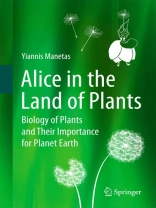Why is it that plants do not need to move? How does a nonmotile organism have sex or defend itself? Why are some plants virtually immortal? What is the mechanism that allows plants to exploit a practically inexhaustible extraterrestrial energy source? How do plants regulate the composition of our planet’s atmosphere? Why have there not been mass extinctions among plants as there have been among animals? How do plants communicate with one another? In the end, are plants intelligent organisms?
These are some of the questions the author discusses to demonstrate that plants are wrongly considered to be simple organisms lacking specific behaviour and intelligence. This book promises to be as pleasant a surprise as Alice’s experience in the white rabbit’s warren, in which she encountered a world very different from ours.
The author explains the biology of plants following Einstein’s maxim that everything should be made as simple as possible, but not simpler.
Jadual kandungan
Introduction: Plants are no less complex than animals – they are just different.- Basic plant organisation– how it differs from that of animals.- Why trees are almost immortal and other related issues.- Short evolutionary history of plants.- Sex in non‐motile organisms.- The world through the eyes of plants.- The defence of a stationary organism.- Symbiosis galore.- Deviations from the basic biological type.- A final word on plant intelligence.- Epilogue: Tribute to Darwin.
Mengenai Pengarang
Yiannis Manetas was born in Athens, Greece (1947), studied natural sciences and geography at the University of Athens (1970), and received his doctorate in biological sciences from the University of Patras, Greece (1976). Since 1978, he has held several different research and teaching positions at the University of Patras, where he currently is Professor of Plant Physiology in the Department of Biology. He also has participated in research at the Universities of Goteborg (Sweden), Stirling (Scotland), and Essen and Karlsruhe (Germany), as well as at the Abisko Research Station (Swedish Lapland). His publication list includes more than 120 research papers and review articles in international journals. His current research interests concern the ecophysiology of Mediterranean plants, the role of foliar anthocyanins, and the function of nonfoliar chloroplasts.












